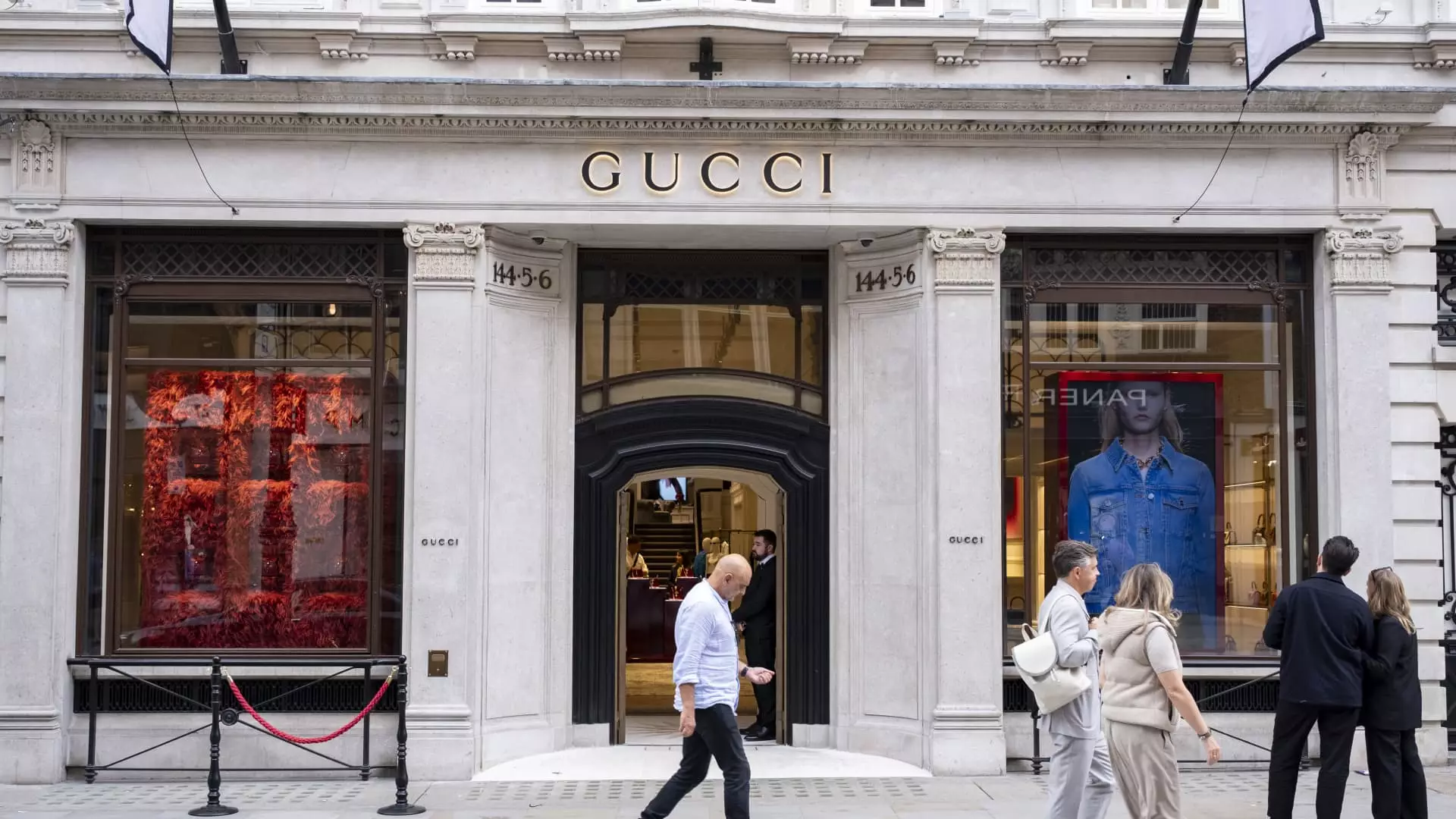Kering, the French luxury group behind brands like Gucci and Yves Saint Laurent, has been facing a challenging time in the luxury market. The company recently issued a warning that it expects a significant decline in first-half profits, leading to a sharp drop in its stock price. This can be attributed to waning demand for its flagship brand, Gucci, which has been struggling to maintain its market share amid changing consumer preferences and economic conditions.
The decline in Kering’s performance can be attributed to a variety of factors. The company’s chairman and CEO, François-Henri Pinault, mentioned sluggish market conditions, especially in China, as a key driver of the downturn. Additionally, the strategic repositioning of certain brands, starting with Gucci, has put further pressure on the company’s topline. It is evident that the luxury market is becoming increasingly competitive, with consumers shifting towards more understated luxury brands, a trend that Gucci has been struggling to adapt to.
Interestingly, Kering’s struggles stand in contrast to its competitors like LVMH and Hermes, which have managed to stay resilient in the face of economic headwinds. While Gucci was a standout performer for Kering in the past, delivering strong results in 2021, it has since faced challenges in retaining its market share. This is particularly evident in the decline in Gucci sales, which fell 18% in the first quarter of this year, compared to the same period last year.
Looking ahead, Kering is likely to face continued pressure in the luxury market as it works to regain its footing. The company has signaled that it will continue to invest selectively in the long-term appeal of its brands, emphasizing their distinctiveness. However, the road to recovery may be challenging, especially as economic conditions remain uncertain and consumer preferences continue to evolve. Kering’s ability to adapt to these changing dynamics will be crucial in determining its future success in the luxury market.
Kering’s recent struggles in the luxury market highlight the challenges that even established brands can face in today’s dynamic environment. The company’s experience serves as a reminder of the importance of staying attuned to consumer trends and remaining agile in response to changing market conditions. As Kering navigates through this difficult period, it will be interesting to see how the company evolves and adapts to the new realities of the luxury market.

